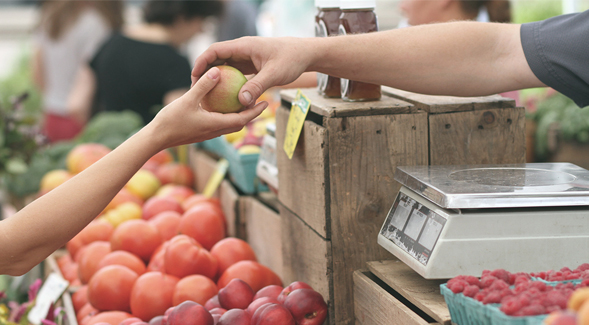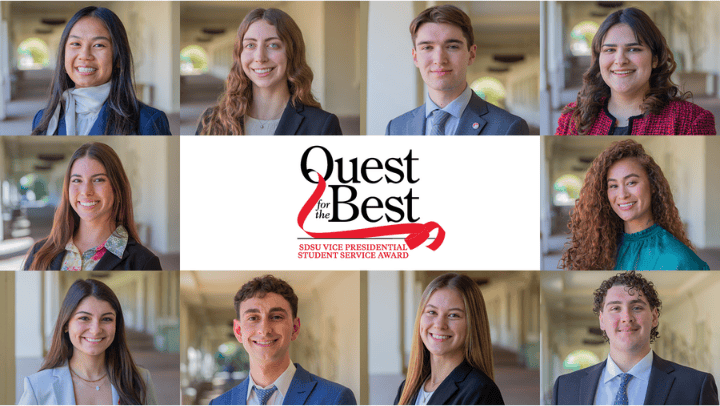SDSU Expanding Efforts to Meet Students' Basic Needs
The Division of Student Affairs is hosting Hunger and Homelessness Week to address student well-being.

San Diego State University is hosting Hunger and Homelessness Week, part of an expanding effort to support the well-being of students inside and outside the classroom
Events kicks off Nov. 13 with the Hunger and Homelessness Awareness Resource Fair, from 11 a.m. to 2 p.m. on Centennial Walkway. The fair offers information about SDSU and off-campus resources to aid students facing food and/or housing insecurity.
CalFresh Day at the Union will be held Nov. 14, 10 a.m. to 2 p.m. Students can meet with enrollment specialists in the Conrad Prebys Aztec Student Union to submit an application for CalFresh and how to cook healthy food with CalFresh qualifying foods.
Lunch and Learn: Understanding Student Homelessness will be held from noon to 2 p.m. Nov. 15 at the Conrad Prebys Aztec Student Union Theatre and will include a screening of “Inocente,” a film that follows the life of a teenager who is undocumented and homeless, followed by a panel discussion. Lunch will be provided.
The events at SDSU coincide with a nationwide effort at colleges and universities to better serve the most core needs of its students, as well as the California State University system’s Basic Needs Initiative.
The Basic Needs Initiative adopts a holistic approach to supporting students under a model that emphasizes supporting housing, food and mental health issues concurrently.
“We are committed to addressing and reducing barriers to student success, including food and housing insecurity,” said Andrea Dooley, associate vice president for Student Affairs, who oversees the Economic Crisis Response Team.
“We know from our own and other research that coordinated and holistic efforts provide the most benefit to aid in the success of our students,” Dooley said. “This is one of the major reasons why we, as an institution, have adopted a multi-tiered approach to support students by addressing their immediate needs and helping them find longer-term solutions.”
SDSU’s other programs, services and efforts include:
- SDSU’s Economic Crisis Response Team (ECRT) serves as a one-stop shop, connecting students with resources when they experience an unforeseen financial crisis, including meals, housing, financial support, counseling and other services.
- Using “Mobi,” the mobile demonstration kitchen, SDSU provides cooking demonstrations of food items commonly found at the SDSU Food Pantry and provides students with recipes for cooking low-cost, nutritious meals.
- Associated Students launched the A.S. No Waste initiative to communicate with students via Twitter when food is available at student events.
- The Associated Students Food Pantry, held Wednesdays and Thursdays, provides nutritious food and educates students on further resources available, including CalFresh.
- CalFresh is a federally mandated and state-supervised program that provides up to $195 every month in free groceries for qualified students and can be used at Trader Joe’s at South Campus Plaza and other stores nearby.
Also, SDSU has partnered with community organizations to place enrollment specialists and eligibility workers on campus to support students interested in enrolling in CalFresh. The team provides service through both appointments and walk-in support.
“It’s simple and easy, and it encourages students to make better choices with food,” said Stephanie Waits Galia, director of Well-being & Health Promotion. “This simpler approach is helping students to navigate those changes with the support they need, rather than feeling they need to figure out how to manage this on their own.”
In addition, SDSU has partnered with San Diegans for Healthcare Coverage support eligible students in signing up for Medi-Cal, California's Medicaid program, which provides access to health care services for low-income indivduals and families.
“Issues surrounding students’ basic needs are getting more attention on college campuses, which has led to a reexamination of current barriers that exist for our students,” Waits Galia said.
“We are now working collaboratively across campus and with county partners to make sure we are reaching and engaging students at different points and in different places,” she said.



